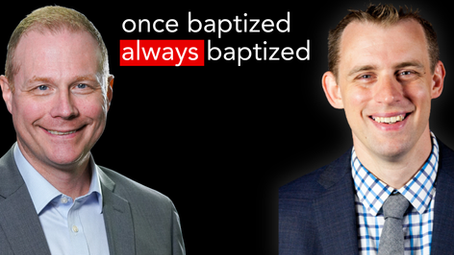top of page
Featured Posts


Why don't we rebaptize?
People frequently wonder whether they should be rebaptized. Usually, it's for one of two reasons. Either they were baptized as an infant, and they ask if they should be baptized as part of their profession of faith. Or they were baptized before they got serious about following Jesus and, having later committed to serious discipleship, wonder if they should rebatized. In this video, I talk through the issues with Dr. Jonathan Powers (Asbury Seminary). We cover: WHY pastors sho
All Posts


Gordon McConville on "The Challenge of Being Human"
Hamlet’s take on Psalm 8:5 (Act 2 Sc. 2) highlights the contradiction between the enormous potential of human beings and their mortality,...

Matt O'Reilly
1 min read
SBL Suspends New Student Restrictions
Late last year the Society of Biblical Literature imposed new restrictions on student paper presentations and participation at the SBL...

Matt O'Reilly
1 min read
SBL Student Survey on Policy Changes
The Student Advisory Board of the SBL is conducting a survey of student members on their perceptions of the policy changes regarding...

Matt O'Reilly
1 min read
SBL Restricts Student Participation
Along with other student members of the Society of Biblical Literature (SBL), I recently received an email letter from John F. Kutsko,...

Matt O'Reilly
3 min read
Belated ETS & SBL Reflections
I’m a bit behind most in the blogosphere who have already posted reflections on the recent annual gatherings of the Evangelical...

Matt O'Reilly
3 min read
2010 SBL Program Online
The preliminary program book for the 2010 meeting of the Society of Biblical Literature has been put online. Here’s a summary of the...

Matt O'Reilly
1 min read
Rhetorical Criticism: An Appropriate Method for New Testament Studies?
I’ve been working through some material on rhetorical critical approaches to New Testament studies, as of late, in preparation for my...

Matt O'Reilly
2 min read
2010 SBL Paper
I recently got word that my paper proposal for the 2010 Annual Meeting of the Society of Biblical Literature was accepted. The title of...

Matt O'Reilly
1 min read
bottom of page





